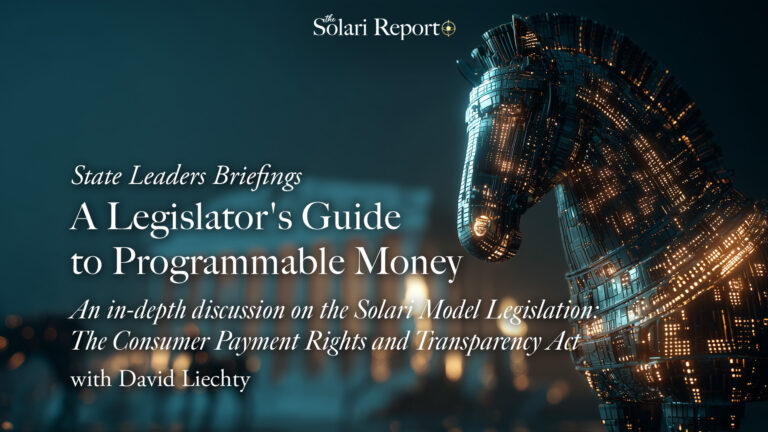By Pete Kennedy, Esq.
Former Tennessee State Senator Frank Niceley left us all too soon, taking a vast storehouse of knowledge and wisdom on food, farming, and life with him when he passed away on June 19, 2025. He was a politician who was a man of the people, never a representative of special interests. Frank said southerners let others do their bragging for them. So here goes.
Frank Niceley was the “gold standard” for a legislator, especially in the areas of food and agriculture. A fifth-generation cattle farmer, he majored in soil science at the University of Tennessee, saying it took about 20 years to get over his education and realize that everything taught at the land-grant schools was structured for the “big guy.” This unlearning, combined with his farming experience (Frank said, “If you can lose money on the farm, I’ve probably tried it at one time or another”), prepared him well to do battle for the small farmer and “little Ag” during his 24-year career in the Tennessee legislature. If there were a pantheon for state legislators who’ve eliminated regulation and red tape for family farmers and local artisans, Frank would be in there along with Tyler Lindholm in Wyoming, Marc Roberts in Utah, Craig Hickman in Maine, and Greg Hertz in Montana.
The four main components to food freedom are raw milk, adopting all the federal exemptions from inspection for meat, adopting all the federal exemptions from inspection for poultry, and eliminating or reducing regulation for sales of all other foods (e.g., cottage foods). Frank covered them all in sponsoring successful legislation for raw milk herdshares in 2009, federal poultry exemptions in 2014, federal meat exemptions in 2017, and cottage foods with the Food Freedom Act in 2022, which allowed the unregulated sale of all shelf-stable foods, not only direct from home kitchens to consumers but in retail stores as well. However, legislation wasn’t the only way that Frank advanced the interests of “little Ag” in these areas. He was able to get a ruling from the Tennessee Attorney General (AG) that herdshare dairies could legally distribute all other raw dairy products to their shareholders. He also was able to get a favorable state attorney general opinion on the meat exemption, with the AG finding that there could be an unlimited number of owners for a custom or on-farm slaughtered animal and that an entity such as a food buyers club could be an owner. With the weakness in slaughterhouse infrastructure around the country, this ruling still could make an impact outside of Tennessee.
On the poultry exemption, Frank was able to convince the Tennessee Department of Agriculture (TDA) to include on-farm slaughter of rabbits under the exemption; before then, rabbits could only be processed at an inspected facility. Frank’s basic messaging to pass the legislation was that “little Ag” wasn’t competition for “big Ag”: “Big Ag feeds the world; little Ag feeds the community.” TDA and Farm Bureau might not have supported most of the food and agricultural legislation that Frank introduced, but, more often than not, he was able to keep them at bay, navigating his bills through to passage.
For Frank, working on bills was like a laboratory experiment, throwing ideas around until he had the legislation he wanted. He was a master at figuring out what he could get out of each bill he sponsored, knowing when to take half a loaf and when to go for the whole thing. He said he entered politics because he liked the fight. No one wins them all, but Frank came out on top plenty of times.
Frank passed numerous bills to help the farmer. They include protecting farmers against suburban sprawl by:
- Enabling them to “opt out” if a municipality is going to annex the area in which the farmer is located
- Enabling farmers to build second houses on their agriculturally zoned land without having to subdivide it because of a local zoning ordinance
- Exempting the farmer from sales tax for items purchased, such as feed and equipment.
To help farmers, Frank went outside the box as well. He sponsored a micro-distillery bill that passed into law, noting that it led to business for farmers selling heirloom corn to distilleries producing heirloom whiskey. He sponsored a successful farm winery bill, enabling farmers who produce their own grapes to have them processed at a winery and then sell the wine at their own farm. He wanted to pass a bill allowing tobacco farmers to roll their own cigarettes and sell them on their farms; that one never materialized.
As much as Frank accomplished in Tennessee, his greatest legacy might be at the federal level. He was known as the father of the PRIME Act, groundbreaking legislation introduced by Kentucky Congressman Thomas Massie that would give states the option of legalizing the sale of custom-slaughtered and -processed meats in intrastate commerce. Frank and Massie hatched the bill during a hayride at Polyface Farm in 2014; Joel Salatin said that it was the most famous hayride in Polyface’s history. A version of the PRIME Act made it into the 2024 House Farm Bill and stands a good chance of being included in the 2025 measure. The scarcity of USDA slaughterhouses in East Tennessee was a driving factor in Frank’s work on this issue.
Frank was the expert on agriculture in the Tennessee legislature and was the farmers’ legislator and ombudsman. If a farmer had a conflict with a regulator, constituent or not, the first call the farmer made was to Frank. The reality was that Frank’s constituency was the entire state, not just his district. The greatest gift is time; he rarely, if ever, turned down a request from anyone for help. One individual outside his district was a Chattanooga chapter leader for the Weston A. Price Foundation (WAPF), Michelle Reneau, the current state representative in the 27th district. When TDA was threatening to prosecute Reneau for operating her food buyers club without a permit, Frank stepped in and passed a bill exempting a “farm-to-consumer distribution point” from any permitting and inspection requirements. Frank encouraged Reneau to run for office; in 2025, she carried on the Niceley tradition by sponsoring a bill that became law earlier this month to expand his 2022 Food Freedom Act to include home kitchen direct-to-consumer sales of many foods requiring time and temperature control.
Frank’s impact extended far beyond food and farming. He was among a group of legislators who met with economist Art Laffer and took Laffer’s advice to abolish the inheritance and gift tax in Tennessee—a move that boosted revenues to the point that the state enjoys a multi-million dollar budget surplus.
Frank’s work in protecting property rights, health freedom, and the Second Amendment led to people from around the country voting with their feet and moving to Tennessee. Catherine Austin Fitts blamed Frank for there being more traffic jams in the state; she had a case.
Reading the list of bills Frank sponsored and supported, one can see a roadmap toward the restoration of our constitutional Republic. Not passed were bills to reduce the government’s asset forfeiture powers, enshrine jury notification in statute, and partially rectify the abomination known as the 17th Amendment by empowering state legislators to nominate the candidates in Tennessee for U.S. Senate. Bills he sponsored that did pass include fighting the Covid genocide by making Tennessee the first state to legalize the over-the-counter sale of ivermectin; repealing the sales tax on gold and silver, which galvanized efforts toward more financial independence from the Fed and Wall Street; and preventing rich carpetbaggers from turning Tennessee federal elections into auctions by establishing a three-year residency requirement for those running for Congress in the state.
Frank made some powerful enemies with the carpetbagger bill and added more to his enemies list with his successful opposition to oligarch legislation for conservation easements and vouchers in 2024. The RINOs in the Republican party, both inside and outside Tennessee, got tired of losing battles to Frank and set out to primary him. His opposition spent upwards of $2 million on attack ads and mailers to defeat him—a staggering amount for a state Senate race—with much of the funding coming from a Pennsylvania hedge fund. To say the lies about him were shameless would be an understatement; the attack ads portrayed a pro-Trump conservative populist as an anti-Trump liberal. In the end, Frank’s successes as a legislator worked against him. He hadn’t had an opponent in the primary nor general election since 2012, and many of his constituents had moved into his district since then and had little familiarity with him. They couldn’t see the campaign against Frank for the big lie that it was. He deserved more help from those who knew better, but in a profession where loyalty is often a stranger, it wasn’t to be.
It’s easy to think about some of the “might-have-beens”:
- Frank teaming up with Reneau to pass bill after bill on food and health freedom and property rights, leaving no doubt about Tennessee as the cradle of liberty in the U.S.
- Frank joining forces with Massie at USDA to roll back the Federal Meat Inspection Act
- Frank mentoring legislators outside Tennessee until there was a “Frank Niceley clone” in all 50 states
Instead, it’s better to remember the huge footprint he left in food, farming, and many other areas of life. When legislators hear about an idea for a bill, their first question is often, “Has this been done elsewhere?” Thanks to Frank Niceley, the answer is “yes” on scores of bills protecting and expanding individual rights and liberty.
Courage, integrity, vision, friendliness, empathy, knowledge, wisdom, humor, and fight are all qualities he had. It was a blessing to work with him and be his friend. He was the best we can do.




















































































































